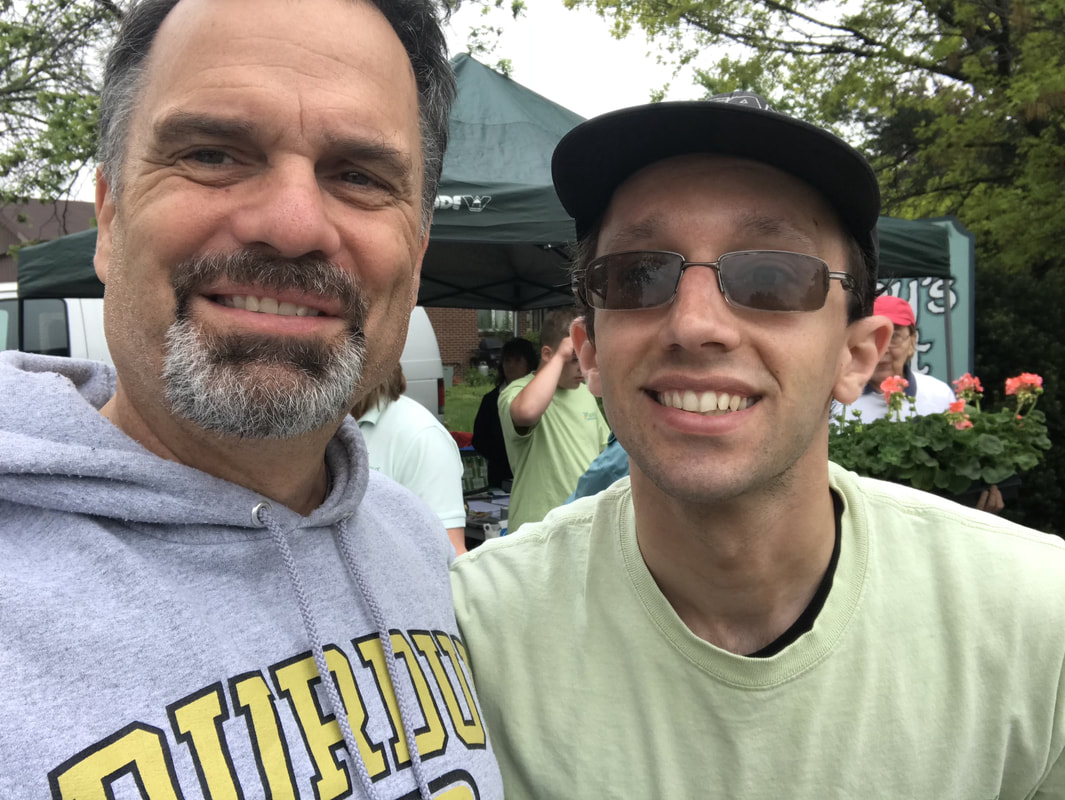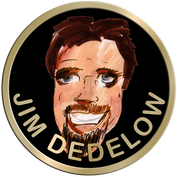around to bitch about it. Armies,
Skittles, Coca Cola and a hairbrush.
These are things that cloud your
mind on a Sunday night.
There’s work and school to
think about. You’d rather
drink a beer, eat some trout.
You’d like to read
and write and sleep til noon. Not
gonna happen, no restaurant,
no saloon.
that sabotage sleep. There are
things to think about that will
make you weep. In the morning
I and you and you
will meet on radio to discuss
the topic.
My desire to do so is ultramicroscopic.
Rape, murder, child molestation.
Cops shot, traffic, illegal immigration.
There is sunshine in Phoenix, I want
to go see it.
I’d rather listen to the radio, then
wake up and be it.
That’s right. It’s a Sunday night. Last Monday, the three or four of you and I woke to:
- murder of an 11-year-old
- a baby brutally beaten
- a local murderer allegedly serving up her victims as barbecue
These are all alleged because they have to be. Tomorrow, we will address two cops shot outside a Highland bar, one in the head. Whatever happened did so about 2:45 in the morning. There are guns everywhere.
The second story that we’ll have to go over is another school shooting. This one in Sante Fe, Texas. Ten dead, more injured. The Texas governor came on today and said – “the teachers are our militia now.” The governor blamed school shootings on video games. I’ve always been a pretty solid believer in our right to bear arms. Don’t mess with it. But I’m starting to rethink gun regulation as I prepare to talk about iy on the air for three hours.
It’s hard to believe, but at the age of 56, I spent my entire weekend doing Marketing homework. It’s a summer class. That means you do 16 weeks work in six weeks. We’re going way back to the high school days. It’s Sunday night. You didn’t your homework. You wind up studying past midnight. Things don’t change no matter how hard you try.
One of the things I’m getting acquainted with is case studies. I’m a little embarrassed to admit to this, but a few weeks ago I went to my Marketing professor’s office hours. I sat on the floor outside her office until the door opened. It’s something I rarely did at Berkeley, or IU, or UCLA, or Occidental or Northwestern, or, until now, Purdue. Now I go to office hours. I sat on the ground with my backpack in my lap. Professors half my age walked by on the way to the bathrooms. You could see the wonder in their faces = What’s this old man doing on the floor?
I was there to ask my Marketing professor if there were missing pages to the case studies that we were covering in class. I’d read these case studies – Red Lobster, Virgin Mobile, etc. – and when I’d get to the end, I’d look for the missing pages.
“I have a question for you, professor. But I’ll only ask it if you promise not to laugh,” I said. She’s from the Middle East. She pronounces words with the emphasis on the wrong syllables. She knows her marketing. Her name is Minoo Tashoori.
“OK. I won’t laugh.”
“Are there pages missing from these case studies?”
“What do you mean?”
“I mean that it’s been 33 years since I’ve been in school. I never did a case study in my life. I read these things and there’s no questions at the end and there’s no discussion points or review problems. There’s nothing. They just end.”
She smiled but she didn’t laugh. She took a deep breath. “OK. I see…” And with grace and patience, she explained to me what a case study is and why it doesn’t have an ending. Basically, case studies exist so that you can have a discussion. You examine the element of the case and try to determine what the managers involved should do. Case studies are learning tools. They don’t have questions at the end.
“And, no, you aren’t missing any pages.” I’m sure she tells this story to her girlfriends at the bar.
After a few case studies, you get the hang of it. A company faces challenges and they have several different options going forward. You have to map out at least one of these options and defend why the managers should do what you say. You get to put yourself in someone else’s shoes and make decisions about someone else’s money. I have not done this. I have always worked for myself.
I had a paper route
I worked for my dad and uncle’s construction company, which was kind of like working for myself
I opened my own sprinkler company
I traded for my own account for 18 years at the Board of Trade
I ran my own 85,000 circulation newspaper
I run a couple radio stations
I’m delving into streaming video.
In all of these, I have basically been my own boss. True, growing up in construction, there were bosses like my dad and uncle and older cousins. But eventually I started my own company – Jenal Construction. It’s a combination of the names of my little sisters, Jennifer and Allison. I forgot to put that business in the above list.
The point I’m trying to get to is that I want to set up a case study for the summer. I want to budget $20,000 to set up a marketing department to figure out what to do with our millions of live streaming video views.
Here’s some of the fact pattern of the case, in no particular order:
- We own two radio stations.
- Radio revenue is steadily rising, but slowly.
- Radio is dying.
In the meantime, we have invested heavily in streaming video. Here’s a few of the things we’ve found:
- northwest Indiana is starved for live video. We get all of our TV from Chicago. We want our own TV.
- radio, if you do it right, can make credible video.
- There’s a ton of really talented people all around me. We can change the world when it comes to live streaming video of radio.
Perhaps the most important element that the three or four of you need to know is that, as it stands, we don’t have a marketing department. That goes for radio and streaming video. We don’t solicit new radio business and the business we have we don’t service well. We just do radio and enough money walks through the door so that we can continue. What’s left over I invest in streaming video.
This method – PMS: the Passive Marketing System – does have an upside. Since we don’t have a sales department, we don’t spend much. We pass on the savings to the people who walk through the door.
But how long can that last? I have already lived one life of John Henry. You know him. He died with a hammer in his hand. He tried to beat technology and lost. So did I.
That was at the Board of Trade. I traded in the pits using hand signals and my voice for 18 years. Then the music died. The pits went away. The computer took over. Poof.
Next, I bought a couple radio stations… and a newspaper. These too are dying industries. But a funny thing happened. We rediscovered the beauty that is WJOB. There’s a spirit that spans generations. It just won’t die. We do dozens of live shows. Hundreds of people grace the airwaves in a week. It’s a busy, bustling couple of local radio stations.
But I know it won’t last. Technology will beat radio, is beating radio. Sure, there’s enough money that walks through the door to keep it at a low hum. But I already lived what happens if you don’t prepare for the future. The spirit of WJOB is good and pure and beautiful. It can transfer to live streaming video.
There’s a couple other things I learned from trading at the Board of Trade.
- Don’t extend yourself. Manage your risk. Although my family’s construction went bankrupt and I twice lost all of our money as a pit trader, I understand, finally, what it means to manage risk. Risk what you can, not what you want to. It took me decades to learn this.
- Invest in the right technology and something good might come of it. It may take a while, though.
There’s another factor to consider– Purdue Northwest. We are located on the campus of this highly technical university. There’s tons of talent I can hire at a reasonable rate. The talent gives me their best for a while. I teach them a few things. Most often, they move on.
As a matter of fact, the Times of NWI just did an article about the woman who just became lead producer of Lester Holt’s nightly news on NBC. Alexis and I watch Lester every night. We used to watch the previous host, Brian. He got caught lying about bullets flying at his helicopter. His name is Brian Williams. Alexis would mix it up and call him “Brian Jennings,” an obvious compilation of Brian Williams and Peter Jennings. Also, our football announcer is named “Brian Jennings.” Alexis had a TV crush on Brian Jennings-Williams. I’m glad it’s Lester now.
But it turns out that the woman who just became lead producer for Lester Holt once interned for us at WJOB. The woman went to Columbia College downtown then. I think I remember her, but I suffer from CRS.
My plan right now for the case study over the summer is to allocate $20,000 to start up a marketing department for streaming video. I plan:
- to hire two or three Purdue marketing students
- develop a complete marketing strategy
- try to get $40,000 in sales by the Sept. 1 for live streaming video.
Here’s how I selected the numbers.
- It costs about $300 to hire an intern for a week 15-20 hours. That’s about $900 per week.
- I plan on running the case study for 12 weeks. That’s $11,000.
- I also plan to allocate $4,000 for the development of the HeyJED app, which is a story for a different blog entry.
- I plan to use $5,000 for the acquisition of leads and to build the appropriate websites and printed marketing material.
That’s a $20,000 budget through August. What should we hope to take in?
This is a difficult question. Since we have never sold advertising around our streaming video, we don’t have any cost numbers. We can only estimate. I’ll estimate that we’ll do streaming video at, say, 50% margin. If that’s the case, if we write $40,000 in business, we’ll break even. (Note that for now I’m excluding all fixed costs.)
I don’t expect to break even. We really just want to discover if there is revenue to be had from all of these streaming video views that we get.
Two of my marketing professors told me the same thing:
“You have to educate local businesses about the benefits of advertising on local streaming video.”
I am taking their advice. And I am taking the case study to the real world. I have hired two PNW people – Mark and Christina. I’ll probably hire one more. We have met a couple of times. They don’t really know the whole plan right now. I’ll explain it to them soon.
Normally in the summer, we bring on broadcasting interns. This year, we’re bringing on marketing interns. That should do it for tonight. Let’s talk tomorrow.
One more glass of water before I
die.
One more taste of carmel popcorn.
One more warm Spring shower.
One more kiss of the woman I
have loved for 30 years. Just
let me lie down inside
her one more time.


 RSS Feed
RSS Feed
